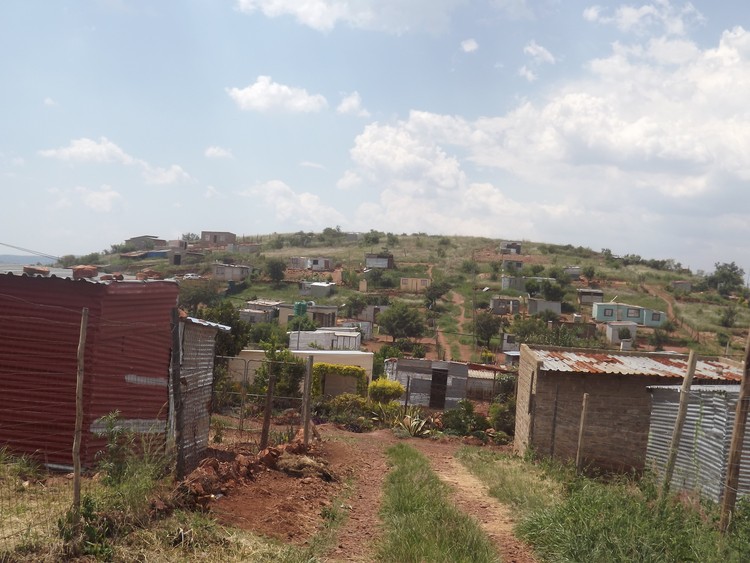
13 February 2025
The City of Tshwane says it does not have enough funds to provide water in tankers to the 12,000 households in Azania informal settlement in Atteridgeville. Photo: Warren Mabona
Thousands of families in Azania informal settlement in Atteridgeville, Tshwane, have no official water supply. The Tshwane municipality says it cannot even provide water tankers.
According to City of Tshwane spokesperson Selby Bokaba, Azania was established in 2017 or 2018, and there are currently 12,000 families.
It was explained to us that families get water illegally connected to taps in their yards. A group of Azania residents do the installations. Household pays this group R10 every Friday. But the households get a mere 20 litres or so a week. Water flows to each home on certain days for less than one hour and the pressure is very low.
Ditheto Ngoepe said she and a group of other residents have approached the management of the City three times and requested basic services.
“We asked for drinking water supply, chemical toilets and sanitation,” said Ngoepe, an unemployed single mother of three children. She buys water from a private truck which sells in the settlement.
“I have to spend R200 and buy 2,000 litres of water every month from people who sell it on trucks. But the water I buy every month is not enough for my family. “
Mantsebo Mohale says she can’t afford to buy water. She puts containers near the tap in her yard every morning with the hope that she can catch some water from the tap. She said the flow of water is often very slow and it stops before she can fill all the containers.
“I can’t cook and wash all the clothes for my two children,” said Mohale.
Mohale also expressed outrage at a lack of toilets in Azania and called on the City to provide chemical toilets. She said some residents have built pit toilets in their yards but many others relieve themselves in the nearby open field.
Lindela Mashigo, also a spokesperson for the City, said the City had no plans to formalise or develop the area, because Azania is located on the Schurverberg Mountain Range, a ridge of ecological importance that must be protected.
“The ridge must be free of development and left as a public open space in line with the record of decision issued by the Gauteng Department of Agriculture and Rural Development on 6 July 2018,” said Mashigo.
He said the City would move the residents but currently did not have land in the area to move them to.
Asked why the City does not provide drinking water in tankers, Mashigo said there was not enough money to provide rudimentary water services to all the City’s 210 informal settlements.
“Thus, Azania is one of the many informal settlements that cannot be provided with rudimentary water services by the City,” said Mashigo.
He did not respond to questions about the illegal sale of municipal water from private water tankers.
Bokaba said connecting to the City’s water was illegal and a criminal offence punishable by law.